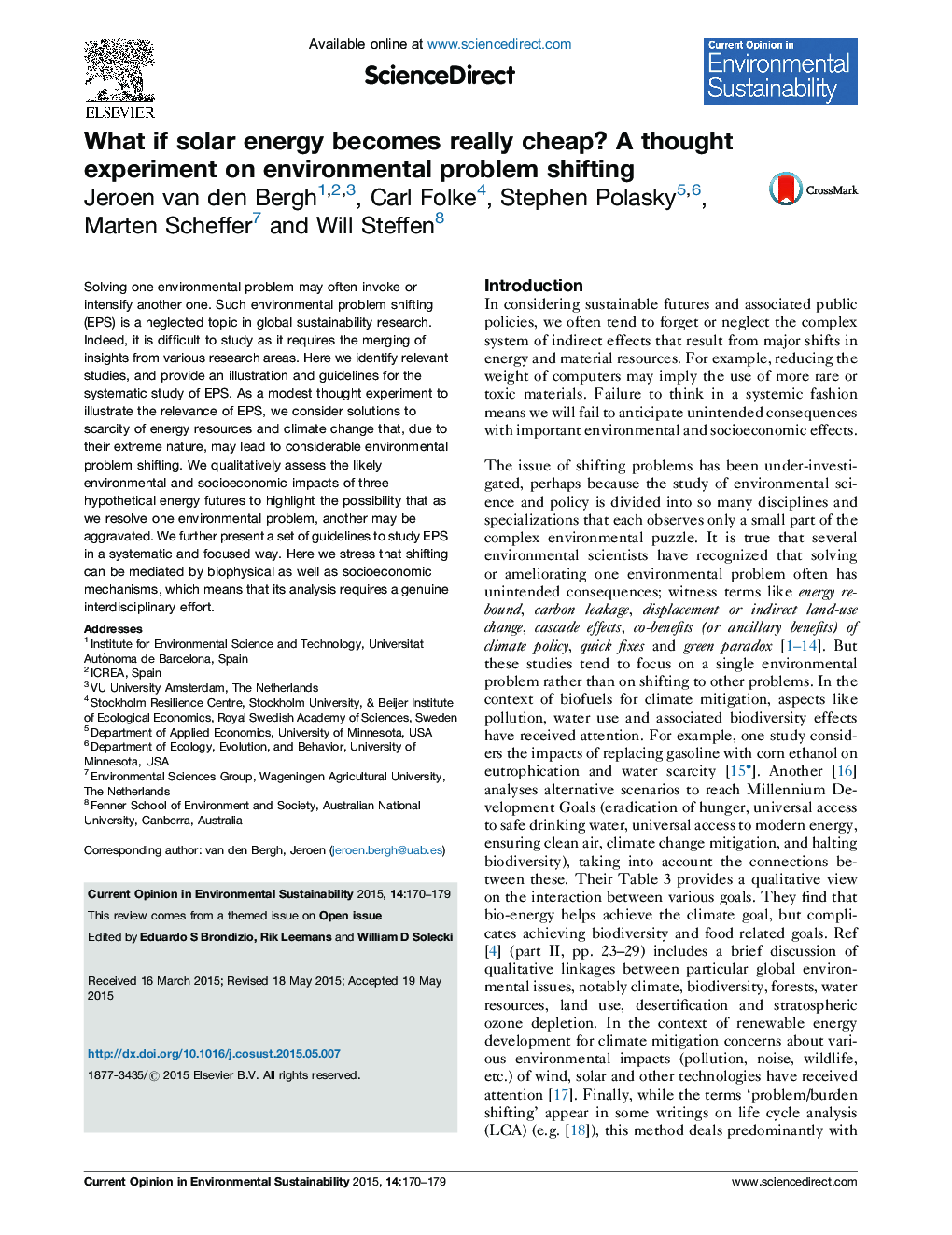| Article ID | Journal | Published Year | Pages | File Type |
|---|---|---|---|---|
| 7462605 | Current Opinion in Environmental Sustainability | 2015 | 10 Pages |
Abstract
Solving one environmental problem may often invoke or intensify another one. Such environmental problem shifting (EPS) is a neglected topic in global sustainability research. Indeed, it is difficult to study as it requires the merging of insights from various research areas. Here we identify relevant studies, and provide an illustration and guidelines for the systematic study of EPS. As a modest thought experiment to illustrate the relevance of EPS, we consider solutions to scarcity of energy resources and climate change that, due to their extreme nature, may lead to considerable environmental problem shifting. We qualitatively assess the likely environmental and socioeconomic impacts of three hypothetical energy futures to highlight the possibility that as we resolve one environmental problem, another may be aggravated. We further present a set of guidelines to study EPS in a systematic and focused way. Here we stress that shifting can be mediated by biophysical as well as socioeconomic mechanisms, which means that its analysis requires a genuine interdisciplinary effort.
Related Topics
Physical Sciences and Engineering
Earth and Planetary Sciences
Earth and Planetary Sciences (General)
Authors
Jeroen van den Bergh, Carl Folke, Stephen Polasky, Marten Scheffer, Will Steffen,
